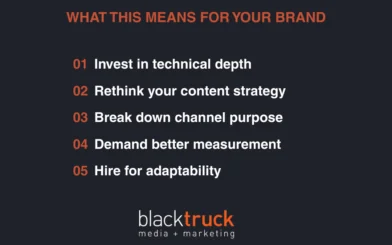Now that Search Engine Optimization (SEO) is a household phrase, it seems everyone and their cousin now offers SEO services. Even many cash-strapped news outlets are starting to offer web development and SEO services (despite the ethical quagmire this creates).
There are plenty of ethical SEOs out there, but there are also a lot of cheats, charlatans, and fakers. Here are some of the tactics used by less-than-reputable SEO consultants.
“Hidden” Anything
Years ago when search engine algorithms were less sophisticated, the practice of “keyword stuffing” became popular as a means of artificially inflating the relevance of a page to search queries. Webmasters would use long strings of keywords (that may not even be relevant to a site) to trick algorithms into ranking pages for those terms.
Keyword stuffing involves hiding those strings of text. Sometimes they’ll hide it in the code of the page, sometimes in the alt-tags of 1-pixel by 1-pixel images, and sometimes they’ll even hide links. Any text that is hidden in a page will be considered bad by search engines because it’s not for users and doesn’t improve the user experience.
That was, however, years ago. Search engines have long since gotten wise to this tactic and developed an array of means to weed out pages that engage in the practice. In fact, Google’s former lead of web spam, Matt Cutts holds a patent on a method of detecting hidden keywords. Sufficed to say, if your SEO is engaged in the practice – you’re risking penalization from search engines.
Link Schemes / Link Spam
As one might divine from the words “spam” and “scheme,” these practices are bad.
Links back to your site from other sites (especially credible sites) are a great way to improve your site’s performance in search. However, these links need to be obtained organically and from relevant properties.
Link schemes/spam take the form of begging for links en masse from other websites (you may even have received some of these emails yourself), posting links in the comment sections of articles or blog posts, relying on directory or bookmark sites, link farming (setting up fake blogs or sites with poor-quality content that exist only to link back to your site), reciprocal links (asking for links in exchange for links), link exchanges (a series of sites that link to each other) and a variety of other forms, aka link wheels.
Also, I hate to break it to you, but all of those links generated from press releases distributed by wire service (which are frequently warehoused on news websites) add zero SEO value. It’s just another link scheme – and search engines are well aware of the practice.
If your SEO is working to create links back to your site that are not obtained methodically from relevant sites – beware.
Guaranteeing Placement
There are limits to the powers of even the best SEO. Though most sites will improve their ranking with some careful attention by an expert, no one can guarantee placement. There are too many variables outside the control of SEOs and website owners. Anyone who claims they can ensure placement is feeding you a line.
Don’t Provide Reporting
Search engines and the Internet they index are in a process of constant evolution. Evaluating the performance of your site is invariably a snapshot of an object in motion.
Ideally, SEO is a practice that is ongoing. That means regular reporting so you know how your site performs over time AND so that you’re aware of potential problems to address them before they grow.
What those reports contain will vary from expert to expert, but some of the common items to track include:
- Organic traffic
- Keyword rankings (showing progress)
- Goal results (part of the initial phase of your consult should be identifying your goals and ways to track them)
- Competitors’ rankings
- Advertising performance
Don’t Disclose SEM Ad Spend
Something many brands don’t think to ask about when contracting search engine marketing (SEM) services is what percentage of the budget will go to the ads, and what percentage will go to the services.
While creating and managing pay-per-click ads can take a considerable amount of time, there is an inherent temptation to tilt more of the money toward the consulting services and less toward the actual ad spend. Before you hand over your money, have a conversation about how much will be allocated to the consulting and how much to the ads.
Hopefully you will have a positive experience with your SEO services and never be confronted with any of these questionable practices. In the unfortunate case that you are, realize that these sorts of tactics CAN hurt if they are detected by search engines. Of course, if you find yourself dissatisfied with your SEO – we’d be happy to pencil you in for a consult.




